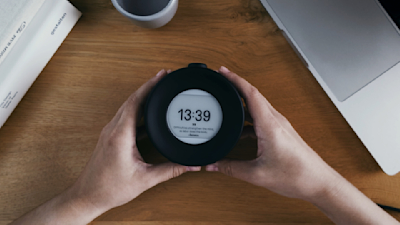
What is Mindful Eating and Why It Matters
What are the benefits of mindful eating?
How often do you think about what you eat? How often do you pay attention to the smells, flavors and textures of the food you consume? When did you last truly savor the experience of food? Let’s be honest, most of the time, with the myriad distractions going on around us, we rarely take the time to pay attention to what’s on our plates and how (and more importantly, how much) we are consuming.
Although you may be familiar with the term ‘mindfulness’, are you aware this practice can also be applied to eating habits?
Most of the time, when we eat, we do it because we're hungry, bored, or preoccupied with something else. Many of us eat lunch at our desks, while in front of the computer or absently snack while watching TV. We simply eat without paying much attention to what’s on our plate and how much of it we actually consume. We are eating with a means to an end. Basically, any time our brain is distracted, we stop being aware of what or how much food we are actually eating. This often leads to poor eating habits and, very often, overeating, which translates to an unhealthy relationship with food.
A woman holding herbs intending to cultivate healthy eating habits
What is mindful eating?
Mindful eating is not a diet. It’s not a fad or a quick fix for weight loss. It’s a way of eating that's focused around developing a new mindset around our experience with food. For some, mindful eating is a way to gain control over eating habits.
Mindful eating uses the act of mindfulness, or being fully present, to help us create healthy eating habits in our increasingly busy lives. The objective is to shift our focus and remove external distractions in order to sit, uninterrupted with our food and fellow diners.
Instead of chowing down our meals while our attention is on the computer, the TV or the screen of our digital devices, mindful eating invites us to remove all those distractions and reconnect with your senses and savor the experience.
Once you bring your attention to the experience of eating, you’re also less likely to overeat and you will allow yourself to become reacquainted with the pleasure connected with meals.
How to cook & eat mindfully
There are a lot of small changes you can make which can help you practice mindful eating. In order to truly enjoy food, you can try to eat more slowly, savor the flavors, the aromas, as well as the textures.
Take time to prepare your food. Notice the smells and colors of the products you use. Paying attention to the moment-to-moment experience of preparing a meal really helps you engage all your senses in the process.
Slowing down and enjoying our meals is one of the best ways to practice mindful eating. This way, you can allow our body and mind to communicate what it needs in terms of portion size and nutrition. Did you know that it takes your stomach approximately 20 minutes to send its satiation signal to your brain, letting it know that you are full. This is why we often unconsciously overeat, when we eat too fast. If we eat more slowly, we can give our body a chance to catch up to our brain and learn to recognize the signals to eat the right amount.
Planning our meals instead of eating at random times and places can also help us with mindful eating. Making time to plate our food and sitting down at the table to enjoy our meal, instead of eating it out of the container means that you are practicing mindful eating.
Eating with others also helps. Not only are you sharing and experiencing meaningful human interaction, but you also eat much slower when you’re in the company of others. This way you can appreciate the food and the people we are with. Additionally, we can take our cues from our dining partners, and maintain in-the-moment awareness of the whole experience.
Practicing a more mindful approach to eating can enhance the enjoyment of your meals, reduce overeating, aid good digestion, reduce anxious thoughts surrounding food, in addition to improving your relationship with food.
If you enjoyed this article, please check out similar ones featured on our blog and learn more about proven tips for better health and overall well-being.
Related stories

New Mudita Harmony Update: Wake Up Inspired with Custom Quotes
Discover the new Custom Quotes feature in Mudita Harmony & Harmony 2. Personalize your wake-up routine with inspiration that starts your day right.

How Mindful Technology Use Improves Sleep
Improve sleep with mindful tech. Discover Mudita's tips to reduce blue light, eliminate disruptions, and set digital boundaries for a peaceful bedtime routine.

How a Consistent Sleep Schedule Contributes to Longevity?
A consistent sleep schedule boosts longevity, supports heart health, and enhances brain function. Learn how better sleep can lead to a longer, healthier life.
If you'd like to receive the best stories from our blog, keep up to date with our progress and get notified about our product releases and special discounts.